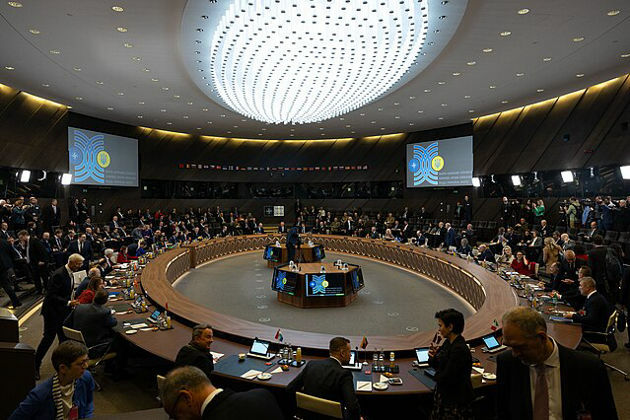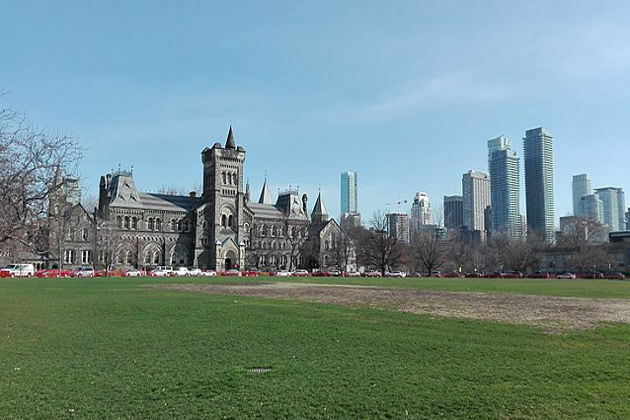What Danish climate migration drama, Families Like Ours, gets wrong about rising sea levels
The Conversation
27 Jun 2025, 13:09 GMT+10

In the Danish TV drama Families Like Ours, one melancholic line from high-school student Laura captures the emotional toll of climate displacement: "Soon we will vanish like bubbles in a creek." This seven-part series imagines a near future in which Denmark is being evacuated due to rising sea levels - a government-mandated relocation of an entire population.
The series challenges the fantasy that wealthy western countries are immune to the far-reaching effects of climate change. Rather than focusing on catastrophic storylines, Families Like Ours portrays the mundane, bureaucratic and affective aspects of relocating a population in anticipation of a creeping crisis: the scramble for visas, the fractures that appear between families, and the inequalities in social and economic capital that shape people's chances for a new life.
Yet, the idea that Denmark could soon get submerged is not grounded in science. More worryingly, the narrative of the unavoidable uninhabitability of entire nations and millions of international migrants flooding Europe is misleading, dangerous, and sidelines deeply political questions about adaptation to sea level rise that should be dealt with now.
Sea levels are rising by a few millimetres a year. That pace is accelerating. The Intergovernmental Panel on Climate Change predicts that, by 2100, sea levels could rise by up to one metre on average. Beyond 2100, sea levels could rise by several metres, although these long-term scenarios are highly uncertain.
Even in extreme scenarios, these developments would unfold over several decades and centuries. It's unlikely that permanent submergence of large areas of land will make Denmark uninhabitable.
Still, sea level rise poses a serious risk to the livelihoods of millions of people living in coastal zones. In the UK, many homes in Norfolk and Fairbourne, Wales, are already at risk from coastal erosion, for instance.
These changes are subtle. They do not warrant the evacuation of an entire nation, but degrade coastal livelihoods over time. Houses in high-risk areas like these may become uninsurable, devalued or too risky to live in. This will force people to move.
In addition, sea level rise makes coastal flooding more likely. In European high-income countries, including Denmark, rising waters already threaten coastal communities. Without adaptation, hundreds of thousands of homes in cities such as Copenhagen could be at risk.
However, depicting climate change as a driver of uncontrolled mass migration is misleading. Sea level rise will contribute to coastal migration, and state-led relocation is already a reality especially in Africa and Asia. But climate migration predominantly occurs within countries or regions. International migration from climate change impacts is the exception, not the norm.
To capture these complexities, some researchers prefer the term "climate mobility". Mobility can be forced or voluntary, permanent or temporary, even seasonal. Some communities and people resist relocation plans and stay put.
Families Like Ours reinforces longstanding narratives that frame certain parts of the world as destined to become uninhabitable. Even UN Secretary-General Antonio Guterres warned of a "mass exodus of entire populations on a biblical scale" due to sea level rise.
As a researcher working on climate adaptation, I notice that sea level rise and climate migration are increasingly discussed at the global level. Discussions focus, for example, on the protection of affected populations and continued statehood of nations after their potential submergence. A new global alliance of cities and regions tackling sea level rise called the Ocean Rise & Coastal Resilience Coalition considers a "managed retreat" not only as inevitable but as a rational and desirable adaptation pathway for many cities and regions.
Scientists have warned that creative storylines highlighting the "uninhabitability" of low-lying countries and regions, such as the Pacific, are not helpful. The mass migration narrative can be used by governments to justify extreme protectionist action and sideline urgent adaptation debates.
States are not helpless in the face of sea level rise and submergence is not inevitable. As geographer Carol Farbotko and colleagues suggest, "habitability is mediated by human actions and is not a direct consequence of environmental change". People often develop their own ways of living with rising waters, resisting narratives of submergence. State-led adaptation is possible, but depends on finance, which is unequally distributed.
People's migration decisions can seldomly be attributed to just climate impact. A community's capacity to respond hinges on social, political, economic and demographic factors. Adaptation measures are costly. This raises deeply political questions over who gets to be protected, who is left behind, and how managed retreat can benefit the most affected people and places in a fair way. We need to overcome mass migration myths and start a serious and justice-focused debate about the future of our shorelines.
Don't have time to read about climate change as much as you'd like?
Get a weekly roundup in your inbox instead. Every Wednesday, The Conversation's environment editor writes Imagine, a short email that goes a little deeper into just one climate issue. Join the 45,000+ readers who've subscribed so far.
 Share
Share
 Tweet
Tweet
 Share
Share
 Flip
Flip
 Email
Email
Watch latest videos
Subscribe and Follow
Get a daily dose of Sweden Sun news through our daily email, its complimentary and keeps you fully up to date with world and business news as well.
News RELEASES
Publish news of your business, community or sports group, personnel appointments, major event and more by submitting a news release to Sweden Sun.
More InformationScandinavia
SectionApple allows outside payment links under EU pressure
SAN FRANCISCO, California: Under pressure from European regulators, Apple has revamped its App Store policies in the EU, introducing...
Alliance eyes major military buildup to counter Russia
THE HAGUE, Netherlands: NATO is pressing ahead with a sweeping new defense spending target, calling on all 32 member nations to commit...
A deadly trap awaits starving Palestinians as they flock for aid
Israel has shut out the UN, installing its own group to hand out food to the starving population except it distributes death instead...
Aid as ambush: The horrifying new face of Israels Gaza war
The IDF has shut out the UN, installing its own group to hand out food to the starving Palestinians except it distributes death instead...
Russia abandons nuclear deal with new NATO member
A long-standing agreement on emergencies is no longer tenable since Sweden joined the US-led military bloc ...
Column: When tariffs backfire: how U.S. tariff hikes are hurting the American economy
The United States' recent tariff hikes have had detrimental effects on its economy, including slowed growth, rising costs, business...
International
SectionFox faces $787 million lawsuit from Newsom over Trump phone call
DOVER, Delaware: California Governor Gavin Newsom has taken legal aim at Fox News, accusing the network of deliberately distorting...
DeepSeek faces app store ban in Germany over data transfer fears
FRANKFURT, Germany: Germany has become the latest country to challenge Chinese AI firm DeepSeek over its data practices, as pressure...
Canadian option offered to Harvard graduates facing US visa issues
TORONTO, Canada: Harvard University and the University of Toronto have created a backup plan to ensure Harvard graduate students continue...
Israel should act fast on new peace deals, Netanyahu says
JERUSALEM, Israel: Israeli Prime Minister Benjamin Netanyahu says that Israel's success in the war with Iran could open the door to...
UN offer rejected in Dreamliner crash investigation
NEW DELHI, India: India has decided not to allow a United Nations (UN) investigator to join the investigation into the recent Air India...
UN climate agency gets 10 percent boost amid global budget cuts
BONN, Germany: Despite widespread belt-tightening across the United Nations, nearly 200 countries agreed this week to increase the...













